So, what is ARPs for All?
In June of 2021, The Alan R. Pearlman Foundation (ARPF) announced ARPs for All: a new program to bring the magic and inspiration of rare vintage ARP synthesizers to EVERYONE in the music-making public.
In partnership with The Record Co. (TRC), ARPs for All launched an initial collection of 5 instruments (the ARP Avatar, Axxe, Odyssey, and a vintage ARP 2600 with ARP Sequencer) available for hands on use, learning, and experimentation at TRC’s community recording and rehearsal facility in Boston. Over the summer of 2021, these were joined by an ARP Omni, Quadra, and a Solus as well as an Antonus 2600!
In the past year ARPF and TRC have been growing this living collection of instruments and foster deeper community engagement through experiential educational programming for the public as well as music synthesis-focused residencies for emerging artists.
Join us and make ARP’s incredible legacy of musical (and electrical!) ingenuity accessible to future generations of makers. In other words: ARPs for All!
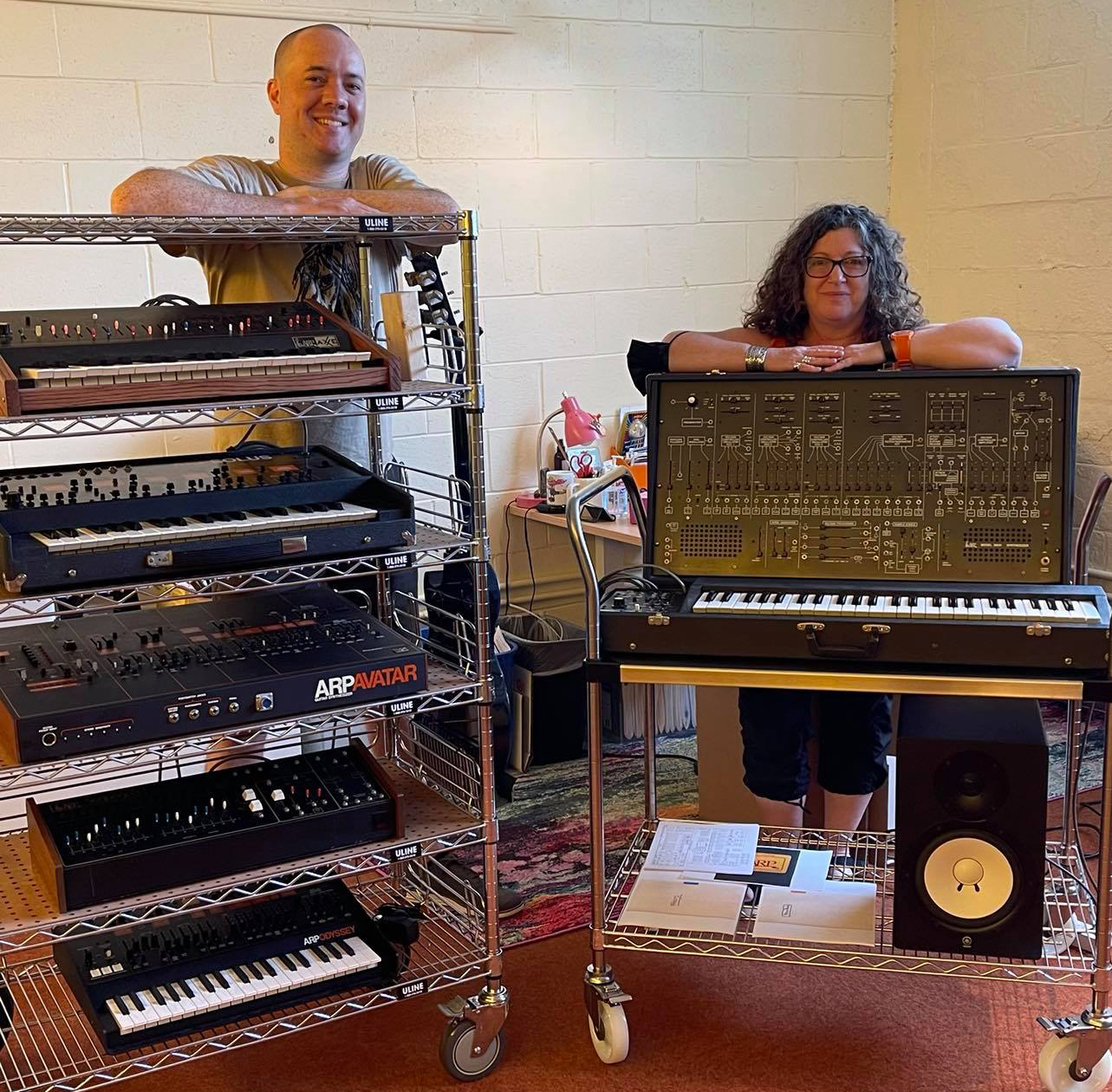
Tell me more about the instruments
- ARP 2600 (1977) [Generously donated by David Mash]
-
- Brief description of notable features
- The ARP2600 is a semi-modular instrument featuring 3 oscillators, a beefy voltage-controlled low-pass filter, amplifier, 2 envelope generators, an LFO, noise generator, ring modulator, reverb tank, and a variety of voltage processors. This instrument debuted the concept of pre-wired connections for the most musically useful features, that could also be overridden by inserting patch cords, thereby simplifying the use of the instrument in performance.
- Brief description of instrument history
- Introduced in 1971, this particular instrument was purchased by TRC Director and ARP Foundation Board Chair David Mash in 1977, and was used by him in hundreds of live performances with his band Ictus, as well as for the Boston Shakespeare Company, where David played synthesizer for numerous performances. The instrument was signed by Alan R Pearlman, and David donated it to the ARP Foundation collection, along with the ARP 1610 sequencer in 2020.
- Characteristic sounds / songs
- The ARP 2600 was used to make the sound of R2D2 in Star Wars, and was featured on countless songs by the Who, Edgar Winter, Weather Report, and so many others…
- ARP Sequencer (1974)[Generously donated by David Mash]
- Antonus 2600 (original 1971; remake 2021) [Generously donated by Antonio Guiterrez and Antonus]
- Axxe (1975) [Generously donated by Mike Hunter]
- Avatar (1978) [Generously donated by Robin Parker]
- Solus (1980)[Generously donated by Peter Churchyard / Dina Pearlman]
- Odyssey (original 1972; remake 2015) [On loan from David Friend’s personal collection]
- Omni (original 1975) [Generously donated by Synthetic Dreamscapes / Alison Cassidy]
- Quadra (original 1979) [Generously donated by Malcolm Doak]
- ARP 16-Voice Piano (approx 1979 to 1981) [Generously donated by Lee Keeley]
- Odyssey Mk I (Model 2800) approx 1972 [Generously donated by Synthetic Dreamscapes / Alison Cassidy]
- Odyssey Mk II (Model 2813) approx 1975 [Generously donated by Alex Ball]
More in the works…
- Brief description of notable features
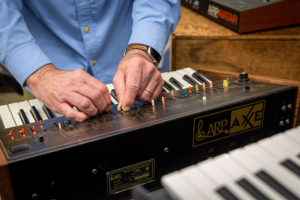
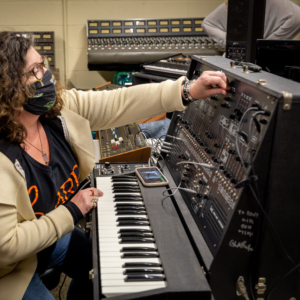

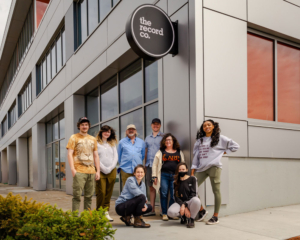
Who do I know who used / uses ARP instruments?
Pete Townshend (Who’s Next, Tommy and Quadrophenia), Edgar Winter (Frankenstein); David Henschel on Elton John’s Goodbye Yellow Brick Road, David Bowie’s Berlin Trilogy and Deep Purple (Space Truckin’), jazz and jazz fusion greats (Herbie Hancock (Chameleon), Joe Zawinul of Weather Report and Les McCann. Other notables include Stevie Wonder (Talking Book and Songs in the Key of Life); Tony Banks (Genesis); Ohio Players, Funkadelic, Trent Reznor (NIN); Depeche Mode, Kraftwerk and more. The infamous sound of the alien communication sequence (Close Encounters of the Third Kind); the Dr. Who sound and Ben Burtt’s sound of R2D2 were all made with ARP Synthesizers!
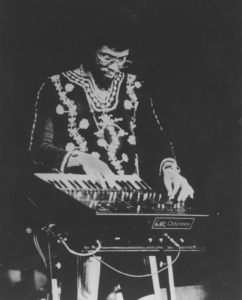
I’m in! How do I get hands on with these amazing instruments?
Short answer: book a rehearsal or recording session at TRC on or after July 1, 2021. While reserving, check the box that says “I’m interested in using ARP instruments during my session” and we’ll get in touchto work out details. There’s no extra cost to access the collection, just TRC’s super low room rates, starting at $10/hr.
Long answer: ARPF and TRC will be working together in the coming year to make the instruments even more accessible through free and low cost workshops and trainings, demos and networking events, and “open studios” — designated times when you can visit TRC and explore the ARPs for All collection at no cost, without a TRC reservation. These opportunities to engage with the instruments will be in addition to the artist residencies we expect to launch in 2022.
Who is ARPs for All?
ARPs for All is a program of The Alan R. Pearlman Foundation in collaboration with The Record Co. ARPF was founded by Dina Pearlman in 2019.
The Record Co. was founded by Matt McArthur and Susan Rogers in 2010.
The ARPs for All program was co-designed by:


